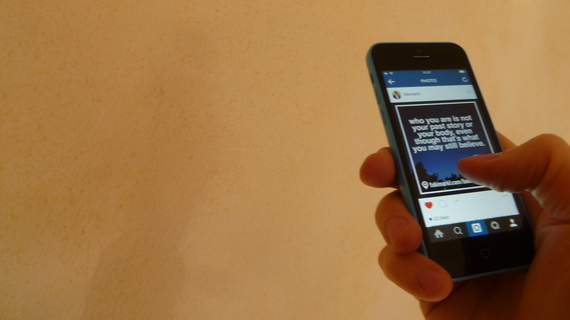If humans remain unconscious, robots will become like humans and humans will become like robots. - Fabian Markl
Through smartphones, humans have become like dogs.
Pavlov was a scientist who had a dog, which he conditioned. Whenever he rang a bell, the dog expected food and its mouth started to water.
The smartphone conditions human behavior very effectively.
Once it gives a sound or a vibration, we are pulled to reach for the phone, no matter whether we are cooking, eating, watching TV, driving a car, riding a bicycle, walking across the street or talking to someone.
The phone rings but we cannot not answer it. It could be important, and if it's not important, we resent the caller.
The phone vibrates but we cannot not answer the text message. We feel compelled to answer within a certain time period, because the sender knows you've read it, and if you don't reply he or she may be disappointed.
Before you grab your smartphone now, ask yourself, "Am I the dog or am I the master?"
Today, when someone speaks to you, calls you, or sends you message, wait, listen and observe your response without expressing it. After a while, you may find that the urge to reply has lessened or even ceased.
We reply to people we don't like, because we feel we should, and because it's just one click.
If you give people space for their response, they may even send you a letter.
Wouldn't that be beautiful?
Your body is smarter than your phone.
For one week I decided to leave my smartphone switched off.
I looked at some food, but it didn't look so good, even though it was kept in the fridge and was still within date. My body said "No" to eating it instantly.
My mind wanted to know whether I could still eat it. So I felt the urge to switch on the smartphone to check whether I could eat the food.
But I listened to my body, and didn't eat that food.
Instead, I cooked something that was fresh. Even though the "smart" phone could have told me that I could still eat it, I threw it away. I realized that the smartphone made me lose trust in myself, in my body's signals.
If you no longer trust yourself, who is left to trust?
You are used to experiencing the world through a screen.
You come to a beautiful scene in nature. You take out your camera, but the light isn't right. You can't take a proper picture. You try to adjust the settings, but it still isn't right. You get stressed because other people are waiting to take a picture too.
So you just take one and turn your back towards the scene without even looking at it with your own eyes. You gained a picture, but you lost the moment.
You film and photograph each event in your life. That is fine, but take a look at the scene first and absorb it with all your senses.
- Can you see how the bird on the branch looks at you?
- Can you hear the wind whispering its secrets in your ear?
- Can you smell the fresh scent of the forest entering your nose?
- Can you feel the joy of the tree in front of you celebrating your presence?
First enter the moment fully, then if you want, capture it.
This article is based on a chapter from my book "unlimited freedom: your guide to an awakened life". You can read the first 30 pages for free at fabimarkl.com/book (no sign up required) and you can get 80 Meditation Cards (based on the book) for free at fabimarkl.com.
